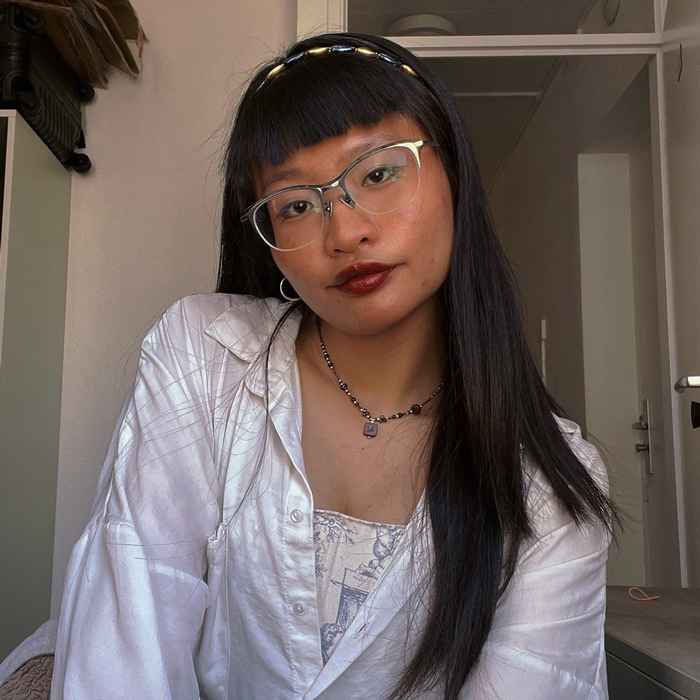'GACP is for students who desire change and want to help make it happen!’

Can you tell us a few words in general about this Bachelor’s?
‘GACP is an interdisciplinary Bachelor’s degree programme that uses knowledge across various fields to analyse the world as we know it, so that we may create answers to pressing issues, such as climate change or the integration of AI in various industries. What makes it stand out is that it familiarises students with oppressive structures around the world and throughout history so we can better understand how power dynamics function. We get to look at different aspects in society to understand these dynamics and how they’re reinforced or criticised, like propaganda, economics, migration, struggles for liberation, but we mostly look through the lens of culture and the arts.’
What do you like most?
‘What I like most about this programme is that the learning materials aim to give insight into decolonial, queer, feminist and/or subaltern perspectives that don’t usually have a focus in academia. While the readings can be overwhelming (from 20 to 90 pages a week) and most are rooted in European epistemologies, they’re compensated with the programme’s genuine interest in broadening our critical understanding of the world. This is especially important to me, as someone from a minoritised background.
Other than that, we also have a variety of assessments, like exams, presentations, fieldwork, and multimedia outputs. For one class, Big History, we collaborated with the city of Amsterdam and created websites about little big histories of the parts of the city to commemorate its 750th birthday. I made a little big history of Amsterdam earl grey tea and got to discuss its evolutionary and colonial history, tying it to a famous local tea shop you can visit near the humanities campus.’
Can you be more specific about the subjects you study?
‘In the first year, we’re given a sample of the four majors — the Human and AI, Reimagining Sustainability, Culture and Social Justice, and Arts and Media — of our programme, a base of knowledge on the modern debates of how society is made up and current debates on addressing contemporary issues, and some skills we can use to critique society.
I think a good representation of this was our introductory class to Arts and Media, which was called Writing Women into History. In this class we were taught how any account of history is subjective, and we asked critical questions about why and how certain narratives are perpetrated, and that the subjective quality of history is not necessarily a harmful thing if viewed critically. We discussed women’s history in North America, Europe, Asia, and New Zealand across racial and class lines and saw how the storytelling and issues of the past leave echoes in our society today. Many of our classes weave in theory with history and the present in this way.’
Can you combine this with real life?
‘Definitely! In GACP, there is a strong tie between the study materials and the real world.
I’ve spoken a lot about arts and culture already... how about technology? There are a lot of questions surrounding the growth of generative AI and we wonder how we can keep AI as an industry in balance with sustainability and humanity. In our classes on AI, we studied the history of ethics in the tech industry, the ways large language models are trained, and how the industry is creeping into our academic and personal lives. This was the first time I looked at AI in an academic lens and it was very eye-opening, we were asked whether we truly understood the technology we use every day.
Of course, you can’t talk about the real world without talking about climate change, either. In our sustainability class, we saw how different human perspectives on the environment affect our treatment of it. Do we see it as an extension of us, a resource to extract, or an aesthetic backdrop? I liked this major because we had different speakers come in to discuss indigenous or community-specific initiatives to address pollution or climate change that argued against pessimistic imperialist narratives that try to tell us that humans cannot live with nature.
Topics like climate change or the AI industry can be quite depressing, but we can’t give up because that’s one way we become complicit to these things happening. This programme is one way I’m trying not to be complicit and learning ways in which I can address inequalities and issues in my future career.'